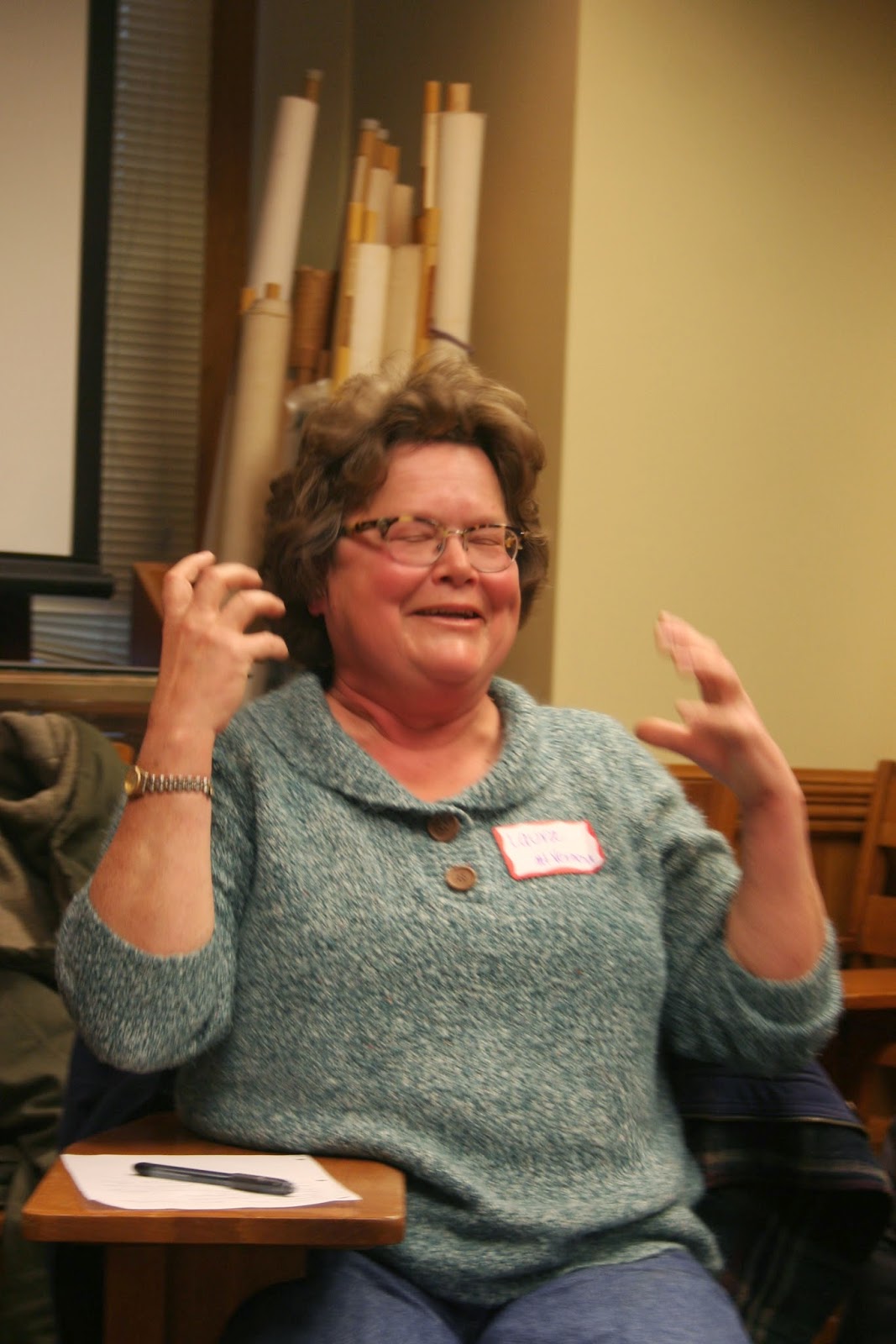Here, where the landscape now consists of over 60% GMO herbicide-resistant corn and beans, Jason and Laura's farming practices represent an important kind of negotiation: growing crops at a scale that benefits from the efficiency of conventional machinery, but doing so using sustainable practices. On the farm, they select and save seed, and maintain soil health with green manure and diversified crop rotations. Off the farm, instead of doing what most of their neighbors do by depending on agrochemical companies to provide them with both inputs and markets for their crops, they pay attention to the needs of local buyers, market locally, and grow through the support of neighbors, families, and supportive peer-to-peer networks with whom they obtain and share information and resources.
Neil's Yellow Dent Corn
Laura Krouse @ Abbe Hills Farm, Mt. Vernon, IA
 |
| Laura Krouse at Pesticide Action Network's Driftcatcher Training Session. Grinnell, IA (2013) |
Laura's seed story emphasizes the urgency to protect seeds and germplasm from appropriation by monopoly interests. She also discusses her ideas about empowering creative, smart people to enter into the world of plant breeding.
Laura's Seed Story: Part I
"The seeds belong to people... The genetics simply cannot belong to a company. They must belong to humans. "
Part II
Meeting New Demand for Local Legumes : Black Turtle Beans
Jason Grimm @ Grimm Family Farm, North English, IA
 I met Jason throguh the Practical Farmer's of Iowa Beginning Farmers Network and soon found out that if there was any regional food business development on the table- Jason was behind it.
I met Jason throguh the Practical Farmer's of Iowa Beginning Farmers Network and soon found out that if there was any regional food business development on the table- Jason was behind it. Raised on a farm and trained as a landscape architect, Jason became interested in working in regional food systems after studying walkable urban communities and imagining how the principles of new urbanism could be applied to decentralized rural communities.
Jason is currently the local food system planner for the Iowa Valley RC&D, the manager of the Iowa Valley Food Co-Op as well as a grower. The thing I most respect most about him is his responsiveness to the needs voiced at local summits and regional conferences. When he hears "we need an online resource to buy and sell local goods" he doesn't waste time gathering collaborators, and turning the idea into The Iowa Valley Food Co-Op. He hears "we need a local producer of legumes" and he's off researching Nebraska edible bean farming, negotiating a spot on the family farm, and and filling the bulk bins at the local New-Pi Food Co-Op with his own black beans.
 Jason's practice also includes a serious commitment to social mobilization, by participating in pragmatic collaborative community building, especially among young and beginning farmers.
Jason's practice also includes a serious commitment to social mobilization, by participating in pragmatic collaborative community building, especially among young and beginning farmers.Stay tuned for Jason's Seed Story!
"That's why I love design too. You're given a problem and then you have to come up with a solution, and knowing that there's multiple avenues to get to the solution... that's kind of how I've looked at the beans. I've never grown them the same way in the last three years that I've grown beans, and this year it's gonna be another different way."

No comments:
Post a Comment